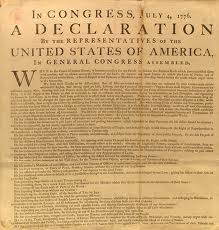It seems I have to confess to a certain fickleness. Or perhaps even double standards. Not hypocrisy, though, nothing that strong.
For weeks I’ve had barely a good word to say for the Olympics. I loathed the hype. I loathed the celebration of corporate values. I loathed the way the rest of us trying to use London were being pushed around.
So my position was clear. Perhaps I’d watch a bit of the occasional event, if it seemed interesting, but otherwise I was going to maintain my position of superior detachment.
And then came the opening ceremony. Obviously I wasn’t going to watch that. It would be far beneath me.
‘Shall we watch the opening ceremony?’ said Danielle.
‘Why, yes, of course,’ I heard myself answering. With no connection between cynical brain and emotional mouth.
And from then on the emotion just grew. That section in the middle? The NHS bit? I had a lump in my throat. Nurses and patients taking part. Some of them had spent 150 hours in rehearsals. And it was a tribute to the NHS itself and the icon for it all was Great Ormond Street Hospital, Britain’s premier hospital for children.
 |
| The NHS at the Olympics |
No wonder Conservative MP Aidan Burley denounced it on Twitter as ‘leftie multicultural crap’, only to be denounced himself, by his own party leader David Cameron, as ‘idiotic’. Which is amusing considering that few of us would view the top of the party as much more intellectually gifted than the bottom.
Burley’s denunciation is completely characteristic, though as always amazing. The Right likes to think of itself as the repository of Christian values, but what could possibly better express the values of the Good Samaritan than an organisation that helps people when they need it without any question as to their means?
By then, of course, I was completely hooked. I watched rest long after Danielle had gone to bed. Since then I’ve seen a lot more of the games themselves than I intended.
My only excuse is that this is typically English behaviour. We like to strike an air of disdain, but the reality is that we’re as sentimental as the best of them – or perhaps the worst of them – and the detachment is really only a defence.
But it does look like terrible inconsistency. Not hypocrisy. But perhaps a little fickleness.
‘Well, I insist on a blog post. Come clean. Admit it to the world,’ said Danielle the next day.
So this is it. My confession. Have I atoned sufficiently?

.JPG)
.JPG)














